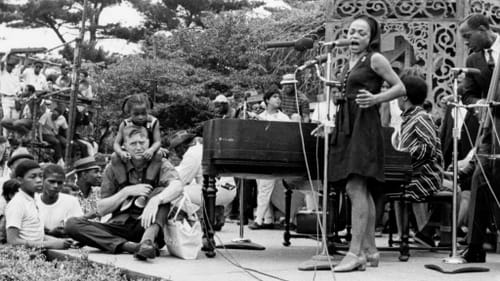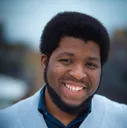Stay in the Loop
BSR publishes on a weekly schedule, with an email newsletter every Wednesday and Thursday morning. There’s no paywall, and subscribing is always free.
Is this my freedom?
In the midst of civil unrest, Juneteenth is here. What does emancipation mean today?

When I was coming up, I never quite grasped how broke we were. When I went off to college on Long Island, New York, I had two white roommates, one coming from upstate New York and another from a Boston suburb. We got along well, and we still ping each other on Facebook from time to time. We bonded over the things college kids in the early 2000s bonded over—watching bootleg Naruto DVDs we ordered from eBay, musing that Family Guy was the greatest show ever (it isn’t), raving over the burritos from the student center, and staying up until close to dawn playing GameCube. What I never shared with them was my depression: I had nothing, and I couldn’t articulate why.
Am I free?
These white folks had so much stuff! Brand-new laptops and heavy-duty PCs, Motorola Razrs, cars with full tanks of gas, and nice clothes. Meanwhile, I didn’t have the tools they were afforded, struggled to make the 3.0 GPA I needed to keep my partial scholarship at my immoderately expensive private school, and could never afford to cut a fashionable figure. This was especially disheartening because I had always been a straight-A student and had never thought much about money, never thought about how my depression stems from oppression and my relationship with white people from different socioeconomic classes.
It was the first time I contemplated my complicated and uninformed relationship with my “freedoms” as a Black American millennial.
When I first got woke
I’m not even going to pretend that I’ve been so woke that I knew what Juneteenth was back then. I didn’t know until I stumbled across a parade in mid-June taking over Market Street. The parade was made up of mostly Black people, donning cloths, robes, and fabrics I didn’t have the words for in vivid saffrons, mahoganies, and earthy greens. I watched with an uncomfortable sense of awe. I did not know how to participate. I wasn’t sure I was invited. Was this parade for me?
This was my first real brush with Juneteenth.
In case you don’t know, Juneteenth is the oldest national commemoration of the ending of slavery in the United States. On June 19, 1865, Union soldiers arrived in Galveston, Texas, with news that the war had ended and that Black people were now free. This came two and a half years after the Emancipation Proclamation, which stated on January 1, 1863, that all enslaved people in states rebelling against the Union “shall be then, thenceforward, and forever free.” Keep in mind that this didn’t apply to enslaved people outside of the Confederacy, nor to those in states loyal to the Union. Slavery didn’t “officially” end until the passing of the 13th Amendment, in 1865.

Slavery did end, at least in that form. What has pervaded since is covert. Uncovering it, redefining it, and acknowledging it is a tumultuous ordeal. One of the first steps is recognizing how it exists today, how Black history has been erased, and how our socioeconomic structures promote ignorance, lack of resources, and misinformation.
Let’s rewind 50 years.
Parading against poverty
Juneteenth became a marker for civil rights again in 1968 when the Poor People’s Campaign took off in May and carried through till late June. It was an effort to gain economic justice and human rights for Americans living in poverty. The movement was predicated on the notion that everyone should have what they need to live. Orchestrated by Martin Luther King Jr. and the Southern Christian Leadership Conference—and later by Ralph Abernathy after King’s assassination—the movement set up Resurrection City in Washington, DC—a tent city where thousands of people camped for several weeks.
The city navigated its protest through unusual rains that begat floods. Tension rose between the residents and police, tourists, and elected officials, ending in violence. A last effort to reaffirm the movement’s original intentions happened on Juneteenth, for what would become known as Solidarity Day. Three days later, the city shut down, and the economic bill the movement sought was never passed.
We continue to fight for economic rights along a seemingly insurmountable hill—the kind of hill that many of us may not have always known we’re climbing.

Juneteenth today
More than 50 years later, Juneteenth is, well…trending again. The state of Pennsylvania signed into law its acknowledgement of Juneteenth as a state holiday in 2019. Pennsylvania joins 46 other states that observe it as a state or ceremonial holiday, leaving Hawaii, North Dakota, and South Dakota out of the picture. I got an email from one of my regular clients noting that they’ll be observing Juneteenth, the first time I’ve ever seen an employer actively acknowledge the day.
Our present moment of civil unrest is an upswelling of what has long been an undercurrent in America. The rising tides in the 1950s and 60s gave way to smaller, fleeting movements over the decades since. We won’t be able to measure the movement while we’re in it, but I do hope this is an opportunity for more people to come to understand the significance of Juneteenth and how emancipation wasn’t enough. The country has taken more than 150 years to collectively acknowledge a day that is symbolic in the emancipation of enslaved Black people, and while there are a few ripples arriving, it’s not enough. The socioeconomic implications of what’s happening in our country are immense and have deep roots in slavery. Slavery is the foundation of our dysfunction, our delusion, and our disparity.
I’m taking this Friday off, using it as a day for meditation, education, and action. I encourage you to observe and absorb the day however you can, too.
Sign up for our newsletter
All of the week's new articles, all in one place. Sign up for the free weekly BSR newsletters, and don't miss a conversation.

 Kyle V. Hiller
Kyle V. Hiller